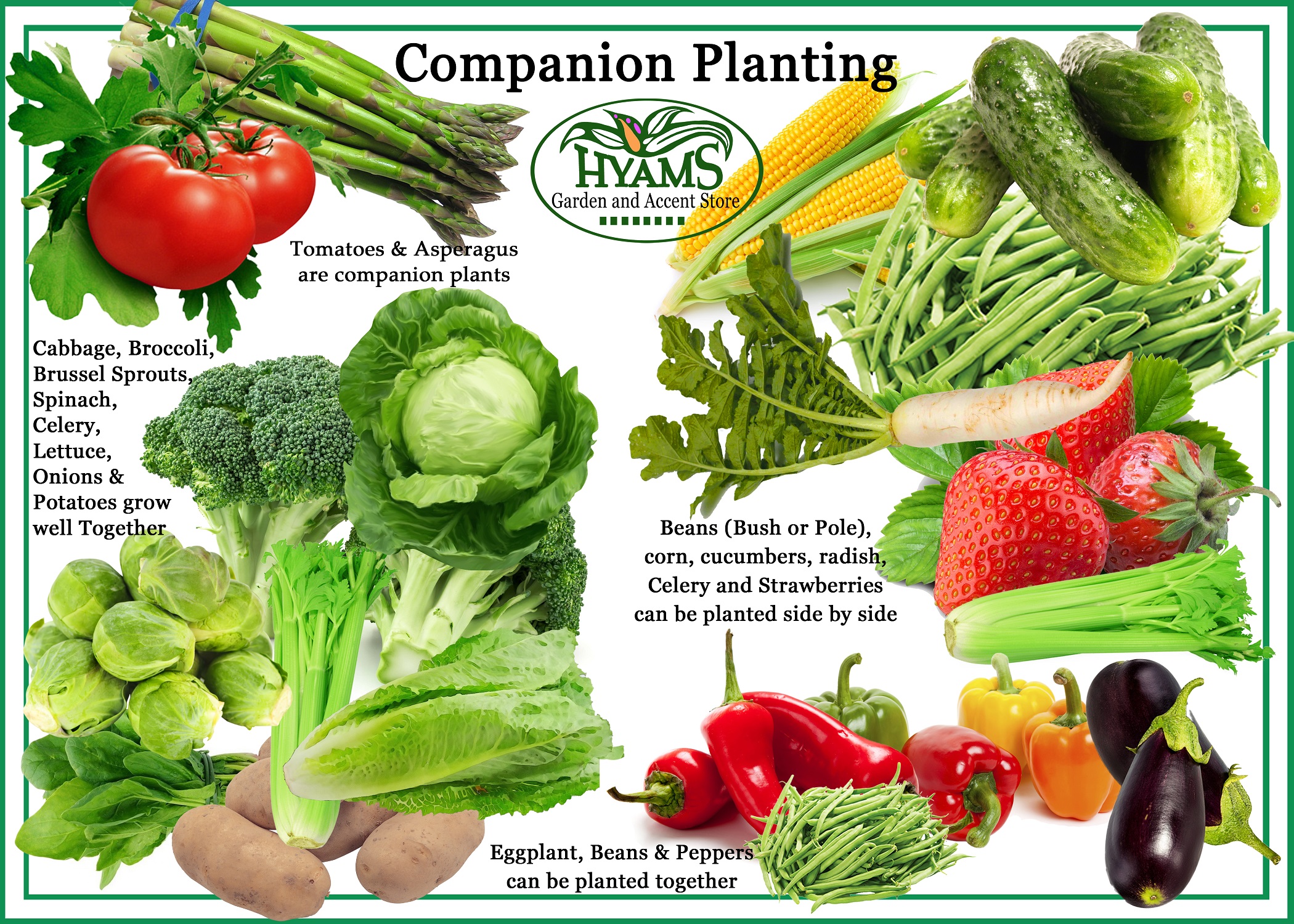Yes, onions and beans can be planted together. They are compatible companions in the garden.
Onions and beans make excellent companion plants. Their compatibility stems from their ability to benefit each other in various ways. Onions can repel pests that might otherwise harm beans, while beans enhance soil fertility through nitrogen fixation. This symbiotic relationship helps create a healthier and more productive garden.
Planting them together can lead to better growth and yield for both crops. This method also maximizes space and promotes biodiversity in your garden. If you’re planning your garden layout, considering onions and beans as companions can be a smart choice for sustainable and efficient gardening.
Companion Planting Basics
Companion planting is an age-old gardening practice. It involves growing plants together for mutual benefit. This technique can improve growth, repel pests, and enhance flavors. Many gardeners use companion planting to create a healthier and more productive garden. Can onions and beans be planted together? Let’s explore this through the basics of companion planting.
Benefits Of Companion Planting
Companion planting offers numerous advantages:
- Pest Control: Some plants repel insects naturally.
- Enhanced Growth: Certain plants improve soil nutrients.
- Better Flavor: Some plants enhance the taste of others.
- Efficient Space Use: Grow more plants in less space.
Popular Companion Planting Combinations
Here are some well-known companion planting pairs:
| Plant | Companion |
|---|---|
| Tomatoes | Basil |
| Carrots | Onions |
| Beans | Corn |
| Cucumbers | Radishes |
Can onions and beans be planted together? Onions repel pests that harm beans. Beans fix nitrogen in the soil, benefiting onions. These two plants can grow well together. They help each other thrive, making a great companion pair.
:max_bytes(150000):strip_icc()/beansandonionscopy-89ef9edbdef94c6a93409058a062e13e.jpg)
Credit: www.marthastewart.com
Onions In The Garden
Planting onions in your garden can be very rewarding. Onions are versatile and easy to grow. They add flavor to many dishes and are rich in nutrients.
Growing Conditions For Onions
Onions thrive in well-drained, fertile soil. Ensure the soil pH is between 6.0 and 7.0. They need full sun for at least six hours daily.
Plant onion seeds or sets in early spring. Ensure they are spaced 4 to 6 inches apart. Water onions regularly, but avoid waterlogging the soil.
Use a balanced fertilizer to boost growth. Mulching helps retain moisture and control weeds.
Common Onion Pests And Diseases
Onions can be affected by various pests and diseases. Some common pests include:
- Onion maggots: These pests feed on onion roots.
- Thrips: They cause white patches on leaves.
- Aphids: These tiny insects suck sap from onion leaves.
Diseases that affect onions include:
- Downy mildew: This fungal disease causes yellow spots on leaves.
- Neck rot: It affects the neck of the onion bulb.
- Fusarium basal rot: This fungus causes bulbs to rot.
To prevent pests and diseases, practice crop rotation. Use insecticidal soap to control pests. Ensure good air circulation around plants.
Beans In The Garden
Beans are a favorite among many gardeners. They are easy to grow and very nutritious. Planting beans in your garden can enhance soil health. This is because beans fix nitrogen in the soil, benefiting other plants.
Growing Conditions For Beans
Beans thrive in warm, sunny spots. They need at least six hours of sunlight daily. Well-drained soil is essential for healthy bean plants. Beans prefer soil with a pH between 6.0 and 7.0.
Water beans regularly, but avoid waterlogging the soil. Mulching helps retain moisture and control weeds. Beans can grow in rows or mounds, depending on your garden layout.
| Condition | Requirement |
|---|---|
| Sunlight | At least 6 hours daily |
| Soil pH | 6.0 – 7.0 |
| Watering | Regular, avoid waterlogging |
Common Bean Pests And Diseases
Beans are prone to pests and diseases. Aphids and spider mites are common pests. They suck sap from the plants, weakening them.
Bean rust and powdery mildew are common diseases. These fungal infections affect leaves, reducing yield. Regularly inspect plants for signs of pests and diseases. Use natural pesticides to control infestations.
- Check leaves for discolored spots.
- Remove affected parts promptly.
- Use neem oil or insecticidal soap for pests.
Rotating crops helps prevent disease buildup in soil. Never plant beans in the same spot two years in a row.
Planting Onions And Beans Together
Planting onions and beans together can be both beneficial and challenging. This companion planting method can help your garden thrive. Let’s explore the potential benefits and possible drawbacks.
Potential Benefits
Onions and beans can support each other in various ways. Here are some potential benefits:
- Pest Control: Onions can deter pests like aphids and beetles.
- Soil Health: Beans fix nitrogen in the soil, enriching it for onions.
- Space Utilization: Planting together maximizes garden space.
These benefits can lead to a healthier and more productive garden.
Possible Drawbacks
While there are benefits, planting onions and beans together can also have drawbacks:
- Competition: Both plants may compete for nutrients and water.
- Growth Interference: Beans’ climbing habit may overshadow onions.
- Spacing Issues: Improper spacing can lead to poor growth.
Careful planning can help mitigate these drawbacks.
Soil And Nutrient Considerations
Growing onions and beans together involves understanding their soil and nutrient needs. Both plants have specific requirements to thrive. Knowing these needs will help your garden flourish.
Soil Requirements For Onions
Onions prefer well-drained soil with a pH between 6.0 and 7.0. They need soil rich in organic matter. Adding compost can improve soil quality. Onions also require consistent moisture but not waterlogged soil. Ensure the soil is loose to allow bulb formation.
To support onion growth, consider the following:
- Add compost to improve soil fertility.
- Ensure the soil is well-drained to prevent rot.
- Maintain a soil pH of 6.0 to 7.0.
- Provide consistent but not excessive moisture.
Soil Requirements For Beans
Beans thrive in loamy soil with a pH between 6.0 and 6.8. They need soil that retains some moisture but drains well. Beans are nitrogen-fixing plants, meaning they can enrich the soil. This is beneficial for nearby plants like onions.
Key points for bean soil requirements:
- Loamy soil is ideal for beans.
- Soil pH should be between 6.0 and 6.8.
- Ensure good drainage to prevent root rot.
- Beans can enrich the soil with nitrogen.
Understanding these soil and nutrient needs will help you grow healthy onions and beans together.

Credit: www.hyamsgardencenter.com
Watering And Maintenance
Proper watering and maintenance ensure healthy growth for onions and beans. Each plant has specific needs. Understanding these needs helps them thrive together. Let’s dive into their watering requirements.
Watering Needs For Onions
Onions need consistent moisture but not too much water. The soil should be well-drained. Water onions deeply once a week. During hot weather, check soil moisture more often. Avoid watering the leaves to prevent diseases. Mulching helps retain moisture and control weeds. Water in the morning to reduce evaporation.
Watering Needs For Beans
Beans prefer evenly moist soil. Water beans deeply and regularly. Avoid letting the soil dry out completely. During flowering and pod development, water more often. Water at the base to keep leaves dry. This helps prevent fungal diseases. Mulch around beans to keep soil cool and moist.
| Plant | Watering Frequency | Watering Tips |
|---|---|---|
| Onions | Once a week | Water deeply, avoid wetting leaves, mulch for moisture retention |
| Beans | Regularly, more during flowering and pod development | Water at the base, mulch to retain moisture, avoid dry soil |
Harvesting Tips
Knowing the right time to harvest your onions and beans is crucial. It ensures you get the best flavor and nutritional value. Below are some essential tips to help you harvest these crops effectively.
When To Harvest Onions
Onions are ready for harvest when their tops turn yellow. This usually happens 100 to 120 days after planting. Once the tops fall over, stop watering them for a week. This helps the bulbs mature fully.
Here are some steps to follow:
- Check the necks of the onions. They should be thin and dry.
- Pull the onions from the ground gently.
- Lay them out to dry in a warm, airy place.
- Allow them to cure for two weeks. This helps in long-term storage.
When To Harvest Beans
Beans can be harvested when they are young and tender. This is usually 50 to 60 days after planting. Look for pods that are firm and crisp.
Follow these simple steps:
- Pick beans early in the morning when they are cool.
- Use scissors or pruning shears to avoid damaging the plants.
- Harvest regularly. This encourages the plant to produce more beans.
| Crop | Days to Harvest | Signs of Readiness |
|---|---|---|
| Onions | 100-120 days | Yellow tops, thin necks |
| Beans | 50-60 days | Firm, crisp pods |
By following these tips, you can enjoy a bountiful and delicious harvest of onions and beans.

Credit: www.onehundreddollarsamonth.com
Frequently Asked Questions
Can Onions And Beans Grow Well Together?
Yes, onions and beans can grow well together. Onions help deter pests that commonly attack beans. Beans, being legumes, fix nitrogen in the soil, benefiting onions.
What Are The Benefits Of Planting Onions With Beans?
Planting onions with beans offers pest control and soil enrichment. Onions repel pests that harm beans, and beans enrich the soil with nitrogen, aiding onion growth.
Do Onions And Beans Compete For Nutrients?
No, onions and beans do not compete for nutrients. Beans fix nitrogen in the soil, benefiting onions. This makes them excellent companion plants.
How Should I Space Onions And Beans In The Garden?
Space onions 4-6 inches apart and beans 2-3 inches apart. Ensure rows are 12-18 inches apart for optimal growth and nutrient sharing.
Conclusion
Planting onions and beans together can be beneficial for your garden. These companion plants help each other thrive. Onions repel pests, while beans improve soil nitrogen levels. This combination supports healthier growth and better yields. Try integrating onions and beans in your garden for a productive and harmonious planting experience.
